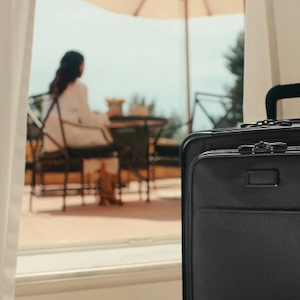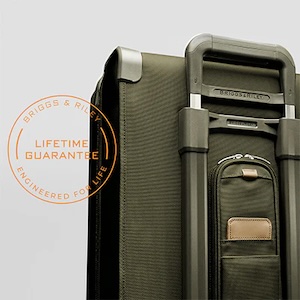TravelingForMiles.com may receive commission from card issuers. Some or all of the card offers that appear on TravelingForMiles.com are from advertisers and may impact how and where card products appear on the site. TravelingForMiles.com does not include all card companies or all available card offers.
Some links to products and travel providers on this website will earn Traveling For Miles a commission that helps contribute to the running of the site. Traveling For Miles has partnered with CardRatings for our coverage of credit card products. Traveling For Miles and CardRatings may receive a commission from card issuers. Opinions, reviews, analyses & recommendations are the author’s alone and have not been reviewed, endorsed, or approved by any of these entities. For more details please see the disclosures found at the bottom of every page.
Although governments around the world are still struggling to come together to agree on a way forward for a COVID passport (or something akin to a COVID passport), more and more countries are saying that they will accept “fully vaccinated” visitors from later this year. On the one hand that sounds promising but, on the other hand, it could spell problems for travelers who don’t read the small print.
Unless you’ve been living under a rock, you can’t have failed to notice a significant increase in headlines like “France opens on 9 June“, “E.U. to reopen borders to travelers with accepted vaccines“, and “Hawaii sets target date to accept vaccinated travelers” and while all of this is undoubtedly great news, some of the comments that I’ve been hearing and reading would seem to indicate that a lot of people are allowing the excitement of the prospect of traveling to get the better of them, and they’re not paying attention to some of the more important details that go along with these announcements.
More worryingly, some media outlets are terrible at reporting all the information that people will need to know.
Key Point 1 – “Fully Vaccinated” Doesn’t Simply Mean That You’ve Had All Your Shots
It’s pretty obvious that no one is going to be considered fully vaccinated if they haven’t had both doses of a two-dose vaccine or the only dose of a single-dose vaccine, but did you know that simply having the required number of shots may not define you as “fully vaccinated”?
While there may well be exceptions (it’s hard to tell with some of the atrocious reporting going around) most countries appear to be taking a similar stance to the CDC when it comes to defining what it means to be “fully vaccinated”, and it’s incredibly important that anyone considering taking an international trip knows what their destination’s definition is.
Per the CDC:
In general, people are considered fully vaccinated:
-
- 2 weeks after their second dose in a 2-dose series, such as the Pfizer or Moderna vaccines, or
- 2 weeks after a single-dose vaccine, such as Johnson & Johnson’s Janssen vaccine
If you don’t meet these requirements, regardless of your age, you are NOT fully vaccinated. Keep taking all precautions until you are fully vaccinated.
A lot of countries will only accept someone as being “fully vaccinated” when that person has all the shots that the vaccine manufacturer recommends and when a period of at least two weeks has passed since that person received their final vaccine dose.
Key Point 2 – Some Countries Have Stricter Rules When It Comes To Defining “Fully Vaccinated”
While the CDC seems happy to consider someone fully vaccinated if they’ve had all the required doses of a vaccine and two weeks have passed since their final dose, other parts of the world are more strict.
The countries of the European Union, for example, will only consider a person fully vaccinated if they have been inoculated by a vaccine approved by the European Union (at the time of writing, these are the vaccines from Pfizer-BioNTech, Moderna, Johnson & Johnson, and Oxford-AstraZeneca).
As things stand, anyone who has had any of the other vaccines (e.g. Sinopharm or Sputnik V) will not be considered fully vaccinated regardless of how many shots they’ve had or how much time has passed since their final shot.
Also, some countries (e.g. France) are saying that anyone taking the single-dose Johnson & Johnson vaccine will only be considered fully vaccinated four weeks after they have been inoculated.
Key Point 3 – Just Because You’re Fully Vaccinated Doesn’t Mean You Don’t Have To Take COVID Tests Or Self-Isolate
This is something that may change in the coming days and weeks but, right now, being fully vaccinated (as defined above) isn’t always enough to exempt someone from having to take a COVID test before traveling or from having to self-isolate at their destination.
Some counties have divided the world into green, orange/amber, and red counties, and their rules for vaccinated travelers differ depending on the color(s) of the country/countries a traveler has been visiting in the 14 days leading up to their arrival.
France, for example, will have the following rules for vaccinated travelers (HT: Forbes):
- If you have only visited green countries in the 14 days leading up to your arrival in France, no COVID tests will be needed.
- If you have visited one or more orange/amber countries in the 14 days leading up to your arrival in France, you must arrive in France with a negative PCR test taken within 72 hours of arrival.
- If you have visited one or more red countries in the 14 days leading up to your planned arrival in France, you can only visit France for essential reasons, you must be in possession of a negative PCR test taken no more than 48 hours before departure, and you must self-isolate for 7 days upon arrival in France. A further negative test will be required to leave self-isolation.
If ever there was a great example of a country where visitors cannot simply assume that being fully vaccinated will grant them testing- and quarantine-free entry, France is it.
Bottom Line
If you’re planning an international trip for later this year and are relying on being fully vaccinated to ensure that your trip runs smoothly, you should make sure that you do your research carefully. Being fully vaccinated isn’t as simple as just having been given all the shots you need and it isn’t a free pass to wander around the world without the need for COVID testing or self-isolation. Most importantly, be aware that the rules surrounding travel continue to change rapidly so make sure you keep on top of the rules that govern your destination or destinations of choice. Failure to do so could easily ruin your plans for the year.




















[…] being fully vaccinated are two different things. What is making everything more difficult is that each country has its own definition of that term. If you’re headed back to traveling around the world, make sure the vaccination you received […]
[…] am now fully vaccinated (as defined by the CDC and the UK government) and I have recently arrived in England from the United States, a country that’s on […]
[…] Union is in the process of opening up its borders to people who are classified as fully vaccinated (make sure you know what being “fully vaccinated” actually means before you make any trav…), the United States remains closed to, amongst others, any noncitizens/nonresidents who have been […]